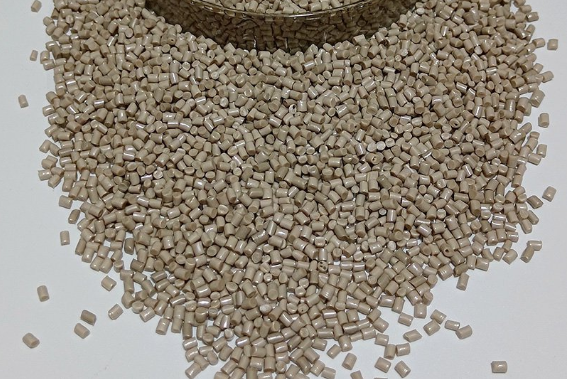PAEK (full name polyetherketoneketone) is a class of crystalline polymers in which phenylene rings are connected by oxygen bridges (ether bonds) and carbonyl groups (ketones). Many different polymers can be formed according to the connection order and ratio of ether bonds, ketone groups and benzene rings in the molecular chain. There are mainly polyetheretherketone (PEEK), polyetherketone (PEK), polyetherketoneketone (PEKK), polyetheretherketoneketone (PEEKK) and polyetherketoneetherketoneketone (PEKEKK) and other varieties.
The difference between the various varieties of polyaryl ether ketone is the chemical composition, the order and the proportion of ether ketone. Since the number ratio of ether to ketone units affects its Tg and Tm, the properties of various PAEKs are different, and the high ketone content varieties have both higher Tg and Tm.
Polyetheretherketone was the first industrially produced variety. A special engineering plastic with excellent comprehensive properties. It has excellent heat resistance, water resistance, solvent resistance and electrical insulation. Radiation resistance is the best among all plastics.

Because the ratio of ether bond and ketone group in its molecular structure is lower than PEEK, its melting point and glass transition temperature are higher than PEEK, and its heat resistance is better than PEEK. The continuous use temperature is 250 °C.
The properties of PEKK vary depending on the monomeric acid chloride used. PEKK synthesized from terephthaloyl chloride has the highest glass transition temperature and melting point among the main varieties of polyaryletherketone. The melting point and glass transition temperature of PEKK synthesized from isophthaloyl chloride decreased to some extent. In actual production, PEKK is mostly produced from the mixture of terephthaloyl chloride and isophthaloyl chloride.
The proportion of ketone groups and ether bonds in the molecular structure of PEEKK is the same as PEK, its melting point and glass transition temperature are similar to PEK, and it also has excellent heat resistance, mechanical strength and rigidity.
PEKEKK is an important variety second only to PEEK. PEKEKK has excellent mechanical properties, high strength and rigidity. It has reliable fatigue resistance. The long-term continuous use temperature is 250-260 ℃. The limiting oxygen index of the unreinforced grade is only 36%. Even without any flame retardants, it can reach UL94 V-0 grade. It has good electrical insulation performance and good wear resistance, is stable to almost all chemicals and has very good radiation resistance.
Among the above materials, PEEK and PEKK are increasingly used in industrial fields. PEEK and PEKK are commonly used in so-called traditional manufacturing (injection molding, machining, etc.). They both have interesting thermal properties and are known for their strength. To learn more about these engineering plastics, please contact us.
By continuing to use the site you agree to our privacy policy Terms and Conditions.